Phone interviews stand out as both the easiest and the hardest type of interview to do. Quite a dilemma, huh? On the one hand, you don’t need to worry about how you look or traveling to a certain location. On the other hand, the interviewer can’t see you, so everything you say and do matters. When you talk over the phone, you have to rely on your voice to show who you are. Start preparing for a phone interview before the phone rings.
Preparing for a phone interview? Don’t sweat. Check out these tips to ace it and land that job.
Phone Interview Prep (Sans PJs)
1. Research before answering the phone

Learn about the company you’re interviewing with, as you would for an in-person interview. If you stall to answer a question, the interviewer will hear the fast clicking of your keyboard as you scramble to find out what clients impressed you the most. “Even if the interview is just over the phone, do your research on the company and the interviewer. Nothing impresses an employer more than already knowing their mission and how you would fit into their company,” said American University economics major Alexandra Mosenoson. Knowing the details of the position you’re applying for as well as the company’s values and goal(s) will help you to solidify your argument for why you would be a good candidate. Just because you’re talking on the phone doesn’t mean that you skimp on research.
2. Practice your best professional voice
Practice “common questions” ahead of time to calm you down during the call and let you sound more articulate. You definitely want to prep with the basics, but don’t forget to also prepare for those curveballs. “I went into the call [for an interview] confident and ready, and the interview started off very well. Then, however, the staffer asked me what my favorite flavor of ice cream was. It’s such a simple question, but I was caught so off guard that I felt just a little off for the rest of the interview,” said AU sophomore Yazan Hanouneh. You may also want to practice using a voice recorder so you can see how you’ll sound on the call and adjust your tone accordingly. And as you cringe at your high-pitched, nasally nervous voice, you’ll thank yourself.
3. Organize your materials
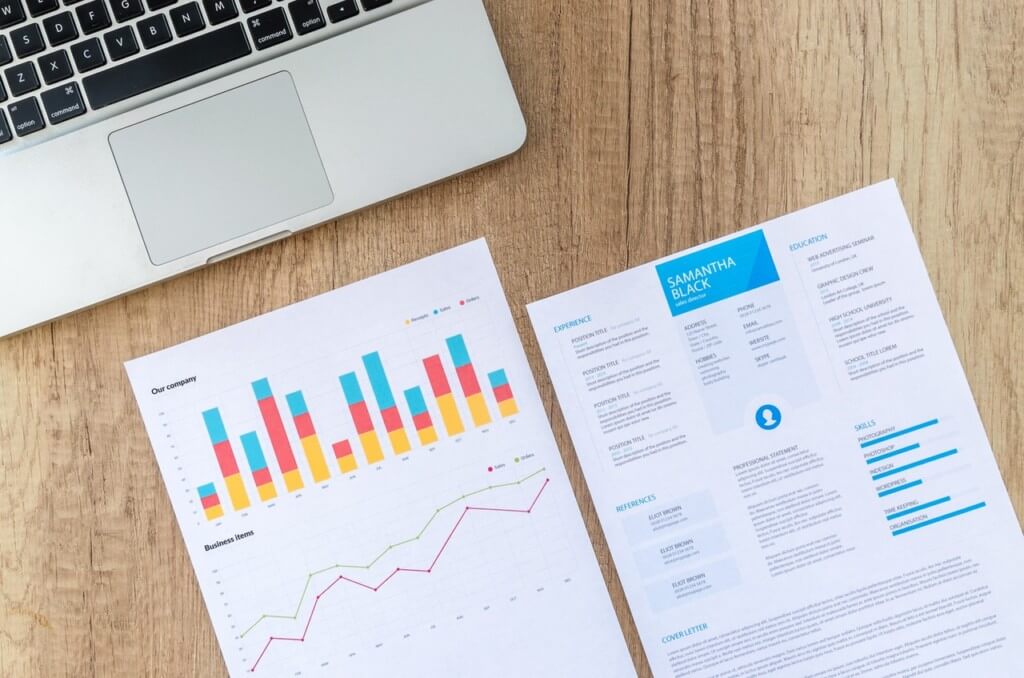
“Print out your resume, cover letter, a list of references and the mission statement of the place you want to work at so you can use them during the interview,” advised AU junior Ryan Fedasiuk. Pro tip: Use them as a cheat-sheet when you get stumped on a question. The person on the other end will never know. Plus, the interviewer will likely be looking at the same papers, so it’ll help you follow along and figure out his method of asking questions.
4. Ditch the PJs for Dress Pants
Dress for the job you want, not the couch-surfing job you currently have. “Even if you’re interviewing over the phone, you should dress like you’re actually going to an interview,” said AU junior Alex Gilder, who works with the School of Professional and Extended Studies. By dressing up nicely, you’ll feel much more professional and presentable. That means you’ll act and sound much more mature, too. No one said to wear those pinchy-toed shoes or that overly warm blazer. But if you wear pajamas, you’ll feel lazier, and that translates. Another good tip from Fedasiuk: “Have a water bottle handy to stay hydrated and avoid coughing.” Avoid choking on air while taking up the interviewer’s time.
5. Create an environment that won’t distract you
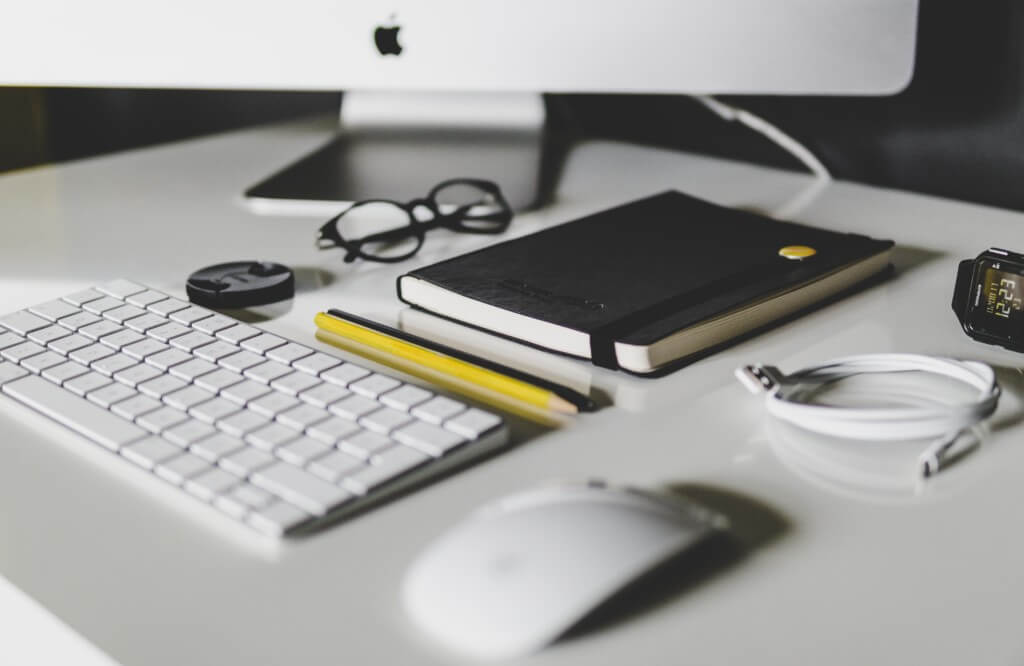
Become your own audio technician. Your voice really matters here, so you want to make sure it sounds clear. “Find a quiet space that has strong cell connection—there’s nothing worse than not being able to hear what your interviewer is asking you,” said AU senior Tina Dedrick. A quieter room makes it easier to hear and cut out background noise that makes you sound (and look) better too. You don’t want friends yelling “pass the beer” in the background of the call as you answer the question, “tell me about yourself.” That also means putting away physical distractions. “Keep away from your computer or any other electronics during the [interview],” said Fedasiuk. “You don’t want your attention to waver.”
Take a deep breath and smile. Here comes the scary part: the actual phone interview.
While You’re On the (Phone) Line
1. Keep breathing
You’re probably thinking, “I’m always breathing, what do you mean?” Well, you need to remember to breathe. Taking a moment before you start talking can help you calm down and also slow down. When people get nervous, they talk at lightening speed. That can make them harder to understand. Another bonus? Breathing deeply before answering a question will reset your thoughts.
2. Pause for thought
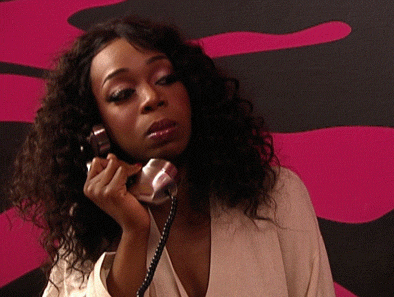
Don’t respond, “I have no clue.” Instead, say something like, “You know, I need a moment to think about that,” to prove your honesty and maturity. This respectable move will give you a chance to reflect. So instead of playing the guessing game, you pull a Lindsay Lohan move and reflect on the answer, “The limit does not exist!” Quickly responding that you hold zero leadership experience instead of drawing on that time you delegated a group project like a boss won’t give the interviewer the personality bits that make you hirable. Even if you typically act quick on your feet, do you really want to take that risk?
3. Take a walk

Feel free to move and stretch out those calves. “Stand up while talking on the phone and look at yourself in the mirror. You will speak with more expression in your voice if you can see what your face is doing, and standing can give you more confidence since sitting can make it sound like you’re being lazy,” said AU junior Savannah McCann. Do whatever makes you feel comfortable, assertive and focused. Some people nervously pace back and forth while talking, but it calms the nerves. Figure what works for you and apply it so you sound your best.
4. Never underestimate the power of your voice as body language
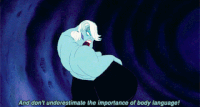
Reflect your emotions through your response because newsflash: the interviewer still can’t see you. “Be careful with the tone of your voice. It is your visual representation. Make sure you sound interested, confident and capable. [Also,] smile so your friendliness can be heard!” said an online resource from the Florida State University Career Center. Since you can’t rely on non-verbal cues to show that your excitement, find a way to convey that through your voice. Even if you just throw in the occasional “mhmm” or “oh, yeah,” it tells the interviewer that you’re into the call. Engagement is key.
5. Notes are your friend
Write down facts and little reminders to yourself to help you during the interview process—from when you first look at the job until you land it. “Take notes during the call so you can keep track of things including points you want to make,” said Scott Talan, a professor of Public Relations at AU. Scribble away every last detail in your chicken scratch handwriting without feeling judged. Write “mention graphic design class” or “ask what ‘inventive approach to problem solving’ is” to keep yourself on point in the call. Bring up your questions at the end of the call to make you look like an A+ candidate.
The Happily Ever After Your Phone Interview
1. Follow-up
Thank the interviewer for their time, tell them how pleasant it was to talk to them and say you hope to hear from them soon. These formalities should be adjusted depending on how you feel the call went, but always necessary. At some point in the 24 hours after your phone interview, send a brief email thanking the interviewer again and reiterating your interest in the position. And if they said they would get back to you “soon,” it encourages them to move up that deadline. Always leave the interviewer with a good taste in their mouth. Even if it didn’t go well, you would rather they remember you as a polite person.
2. Treat yo’ self
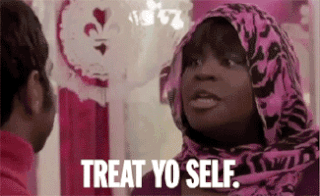
You finished your interview, now celebrate! Going out or getting a sweet treat can feel rewarding once you get through the call, but taking a nap or a hot shower can also help you to decompress. But regardless of what you do, do something for yourself—you adulted.
What You Should Never Do during a phone interview
1. Don’t Read your answers

Never read entire paragraphs off a page. If the interviewers wanted that, they could look at your resume and cover letter. Reading sounds very different from talking naturally, so don’t think you can get away with it. “Think of your notes as a ‘cheat sheet’ that you can refer to when making important points, not a script,” encouraged the resource sheet. Interviews show who you are as a person more than anything, so relax and be yourself.
2. Don’t say, like, yes or no or uh

Avoid saying, or at least overusing, filler words such as “ah,” “umm” and “like.” This language makes you come off as lazy, uneducated or unprepared—all qualities that you do NOT want associated with you. Learning to do this can feel a bit like riding a bike for the first time but remember that you don’t have to eliminate these words from your vocabulary entirely—an occasional “umm” or “hmm” can be fine. Also avoid using “yes” or “no” as full answers to questions. “Add selling points at every opportunity by backing up your answers with specific examples from previous work and/or education experience,” the resource suggested.
3. Stick to water

Unless your throat gets super dry and you need a sip of water, you don’t drink or eat ANYTHING while interviewing. You’re not as sneaky as you think. Interviewers will hear you the second you try to take a sip of that soda or shove a few chips in your mouth. Not only does this come off as really unprofessional (and also a little gross), but it can also inhibit your ability to answer questions. Don’t get caught like I did that one time in class with a mouthful of bagel and had to defend my artistic decisions on an assignment. And certain foods, especially dairy products, mess with the quality of your voice and make you sound less than your best.



















